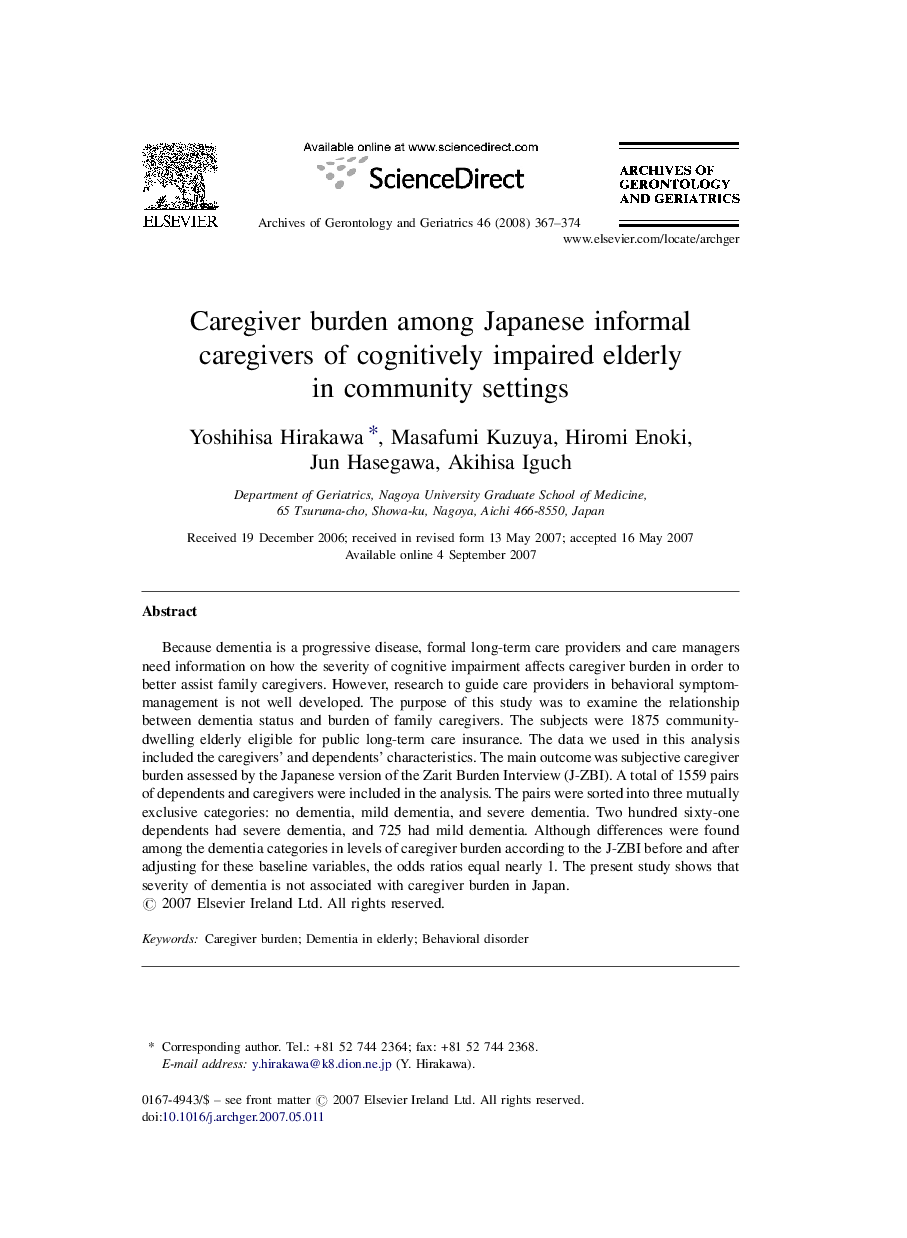| Article ID | Journal | Published Year | Pages | File Type |
|---|---|---|---|---|
| 1904252 | Archives of Gerontology and Geriatrics | 2008 | 8 Pages |
Because dementia is a progressive disease, formal long-term care providers and care managers need information on how the severity of cognitive impairment affects caregiver burden in order to better assist family caregivers. However, research to guide care providers in behavioral symptom-management is not well developed. The purpose of this study was to examine the relationship between dementia status and burden of family caregivers. The subjects were 1875 community-dwelling elderly eligible for public long-term care insurance. The data we used in this analysis included the caregivers’ and dependents’ characteristics. The main outcome was subjective caregiver burden assessed by the Japanese version of the Zarit Burden Interview (J-ZBI). A total of 1559 pairs of dependents and caregivers were included in the analysis. The pairs were sorted into three mutually exclusive categories: no dementia, mild dementia, and severe dementia. Two hundred sixty-one dependents had severe dementia, and 725 had mild dementia. Although differences were found among the dementia categories in levels of caregiver burden according to the J-ZBI before and after adjusting for these baseline variables, the odds ratios equal nearly 1. The present study shows that severity of dementia is not associated with caregiver burden in Japan.
